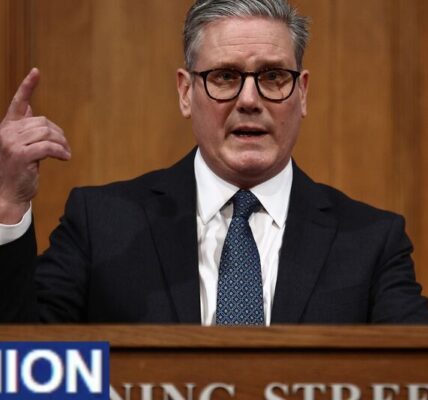The Chancellor is retreating to Labour’s comfort zone as she puts the well-off in her sights

The Chancellor celebrating the impact of the UK-India trade deal (Image: Getty)
Chancellor Rachel Reeves’s survival strategy is becoming clearer by the day. She intends to hike up taxes on the well-off and blame Brexit – not her decisions – for putting the country in an economic danger zone.
In next month’s Budget she may to have raise £40billion if she heeds the counsel of the Institute for Fiscal Studies, and she has confirmed taxes on the wealthy “will be part of the story”.
Millions of Britons who would never consider themselves rich will be unnerved by these words. The Chancellor hiked taxes by £40billion in last year’s Budget but Ms Reeves is coming back for more.
Will grieving families have to pay more inheritance tax? Will people who are strapped for cash but live in an expensive area see their council tax soar?
Will savers who need access to their savings see the amount of cash they can put into ISAs slashed? Will National Insurance have to be paid on rental income?
It is hard enough to get by in a country the IMF warns will have the highest inflation this year and next in the G7 without being blitzed with stealth taxes.
Tories will accuse a desperate Labour party of launching a new class war. They will argue that a weak Government is incapable of tackling Britain’s soaring sickness benefit bill so will squeeze working families until they squeak.
Weary taxpayers will be worried at the lessons she has learned from last year’s onslaught.
She mocks the “bleating” and “scaremongering” and warnings that people would flee the country which greeted her decision to slap VAT on private school fees and hike taxes on private equity.
The Chancellor is in no doubt people will “scaremonger again this year”. This signals the Treasury is cooking up yet another raft of deeply controversial tax hikes.
Political disaster awaits if the Government signs off on the recommendations of civil servants who are spreadsheet maestros but ignorant of the harm and fear their decisions unleash in the real world.
Farmers who descended on Whitehall to protest the changes to inheritance tax relief were not “bleating” when they warned of the turmoil this would cause in rural communities. Employers were not “scaremongering” when they described the impact of her shock increase in National Insurance contributions – and pensioners who were suddenly stripped of their winter fuel payments experienced a true blow to their finances.
The Chancellor is understandably desperate to persuade the bond markets to push down Britain’s frighteningly high borrowing costs. But experts line up to warn her policies have hurt the economy.
Making it harder and more expensive to take on staff does not help growth; agriculture suffers when investment is disincentivised; small businesses are sending out SOS signals about the impact of business rates changes.
When asked about Britain’s “doom loop” of weak growth resulting in the need for tax rises, which in turn make it less likely the economy will grow, Ms Reeves said: “Nobody wants that cycle to end more than I do.”
That is probably not true. High street shopkeepers who are in a battle for survival will yearn with true desperation for a return for prosperity, but that will not happen if a toxic cocktail of tax and inflation poisons growth.

Sir Keir Starmer has pledged his support for Rachel Reeves (Image: Getty)
Ms Reeves seems intent on shoring up her position in a Labour Party which faces growing competition from the Left and needs to stop voters peeling away to the Greens and the Liberal Democrats in May’s elections. Her rhetoric about going after the well-off is coupled with attacks on Brexit, which she blames for causing “severe and long-lasting” harm.
Such frantic political positioning should not come as a surprise from a Government which is at just 20% in the polls but it will do nothing to foster the trust and aspiration which an economy needs to thrive.

